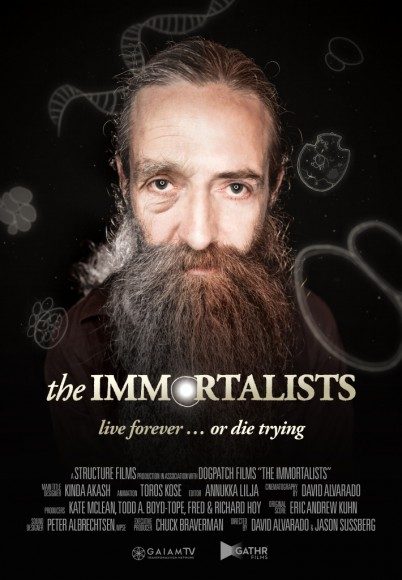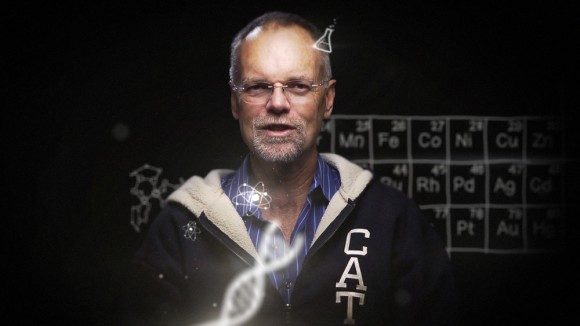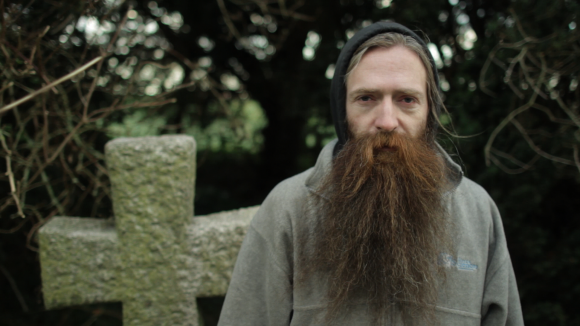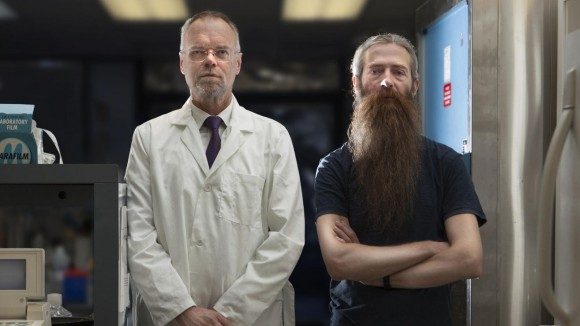Who would want to live forever? This is the fundamental question behind first-time directors David Alvarado and Jason Sussberg’s new documentary The Immortalists, which follows two men on their quest for the fountain of youth: Aubrey de Grey, an amply bearded Englishman, and Bill Andrews, an ultra-marathon obsessed American. It’s important to note what this film is, and more importantly what it is not. This is the story of two men’s search for immortality through science; it is not about the science of immortality.
Advances in modern science and medicine throughout the 20th century have lead to an enormous increase in life expectancy. According to Grey and Andrews, that’s not good enough. The two men work in the often-mocked discipline studying the science of ageing, albeit down different avenues. Grey is investigating animals that demonstrate ‘negligible senescence,’ that is, animals who do not experience functional or reproductive decline as they age. Andrews takes a slightly different route, investigating telomerase, an enzyme that extends a cell’s ability to divide from 50-70 times to a theoretically infinite number of times. These avenues of research are still in their infancy, and that’s one of the biggest hurdles The Immortalists faces. How do you make a film about scientific research, if little to no progress has been made in the field? Alvarado and Sussberg’s solution is to make it about the people.
The real focus of The Immortalists is not the science, but the scientists doing the research. In this respect, the film turns into more of a human-interest piece than a science documentary. Remember, the fundamental question behind the film isn’t, “How do you live forever?” The question is, “Who would want to live forever?” Grey and Andrews provide fascinating answers to that question. Andrews’ motivation is a lot easier to pin down: he would like to stop his father’s mental decline and wants to live longer. Grey suggests his motives are strictly humanitarian, but his mother also experiences a mental decline before her death, and once she’s gone, he mourns the fact that he is the last of his family left alive.
In the film, Aubrey de Grey suggests that a lot of people forget that scientists are also people, and the documentary does well to keep that in mind. These men might be searching for immortality, but they themselves are very mortal men dealing with very human problems. Andrews faces blows to his research when the majority of his funding is pulled and his friend and research partner is diagnosed with cancer. Grey’s marriage to a biologist twenty years his senior is strained when he moves to California to continue research and forms a polyamorous compound with two girlfriends.
There’s no lack for human drama here, but the rich lives of these scientists can feel a bit like a distraction. For a film allegedly about scientific research, there is very little science in it. Instead of taking center stage, the research takes a back seat, providing these men with an impossible goal to strive towards. In doing this, The Immortalists is transformed from a scientific documentary into a very human endeavor.
Verdict: 3 out of 5
The Immortalists is a unique and compelling story of two men on the fringes of rational science. The complexity of their research is matched by the extraordinary ways in which they live their lives and push themselves to continue their research. Unfortunately, there’s so little of that science actually present in the film. At a brisk 78 minutes, the film almost feels incomplete. Very little is spared investigating either the science or the ethics behind immortality. If you are looking for anything more than a cursory glance, you are looking in the wrong place. What The Immortalists does provide is a fantastic look at the lives of two eccentric scientists battling almost irrational odds to achieve the impossible.




